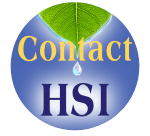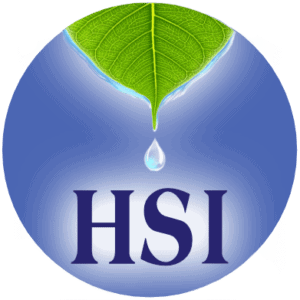What is it about European doctors and homeopathy? Hahnemann, homeopathy’s founder, was a German physician appalled by the climate in medicine 200 years ago, so he created a less invasive form of medicine. Jacques Benveniste, a French immunologist in the 1980’s, discovered interesting dynamics in water, which strongly support Hahnemann’s method. And, most recently, Dr. Luc Montagnier, the French virologist who won the Nobel Prize in 2008 for discovering the AIDS virus, has surprised the scientific community with his strong support for homeopathic medicine based on his research.
Luc Montagnier and Homeopathic Research
Who doubts this guy’s credibility? Discovering a once nebulous and terrifying killer like the AIDS virus puts him up there with the heaviest hitters in the scientific community. Montagnier’s research, unmotivated by a homeopathic agenda, is DNA based, and his findings come out in support of homeopathy. He believes that these new observations will lead to novel treatments for many common chronic diseases, including but not limited to Autism, Alzheimer’s disease, Parkinson’s disease, and Multiple Sclerosis.
Why does it take someone of his kind of stature to prove how homeopathy works, though? There are any number of studies and articles that point out the efficacy of homeopathy. Dana Ullman’s “Scientific Evidence for Homeopathic Medicine” is just one example. Most clinical research conducted on homeopathic medicine that has been published in peer-review journals have shown positive clinical results, especially in the treatment of respiratory allergies, influenza, fibromyalgia, rheumatoid arthritis, childhood diarrhea, post-surgical recovery, attention deficit disorder, and reduction in the side effects of conventional cancer treatments.
In addition to clinical trials, several hundred basic science studies have confirmed the biological activity of homeopathic medicines. One type of basic science trials, called in vitro studies, found 67 experiments [1/3 of them replications] and nearly 3/4 of all replications were positive.
Intellectual Terror – Or, the Shredding of Reputations
So, this all sounds very promising, doesn’t it? Real scientists – doing real science, including many big names from the scientific community.
How exciting that something relatively unknown has the potential to make a big, positive impact on mainstream health care. Plus, at about 1/5 the cost of conventional treatment, homeopathy offers affordability, sustainability, and often better results. Research dollars should come pouring in, right? Weeeeeel…
In the latest interview in Science magazine, Montagnier also expressed his concern about the unscientific atmosphere
that presently exists on certain unconventional subjects such as homeopathy, “I am told that some people have reproduced Benveniste’s results, but they are afraid to publish it because of the intellectual terror from people who don’t understand it.”
This is echoed by Iris Bell, a doctor and researcher, with some very compelling data. Like Montagnier, she is willing to share it and make the connection with homeopathy. But she notes that almost no one in the [conventional] scientific community is willing to do homeopathic research, and even if they do peripheral, seemingly unrelated basic science research, if data shows potential support of homeopathic principles…they refuse to make the connection.
Bell goes so far as to suggest that we probably need a whole new word to describe what homeopathy does. In fact, just rename it altogether. Let the naysayers and no-wayers save face, perhaps? Oh, don’t make them recant all their vitriol. Unlike a certain pleasantly sweet sugar pill, that would be a bitter one, indeed. Goodness me, don’t make them admit that, yes, homeopathy can actually help people heal. Cary Elwes in the Princess Bride comes to mind.
Why not say ‘some new, micro-technological medical discoveries allow us to finally understand how…’ oh, whatever. Is a skeptic’s pride so delicate that we have to rename an effective 200-year old healing modality so he is less scared of considering it, of even letting the word pass his lips without a sneer?
But I guess a new moniker could work. I remember a Calvin and Hobbes comic strip where Calvin refused to eat his seemingly boring dinner of stuffed peppers. Until his mom told him they were stewed monkey brains and then, oh, boy! The power of suggestion is strong. In fact, it’s what the skeptics maintain is the only mode of action in homeopathic treatment. Yeah, the irony of a homeopath lauding the power of suggestion is not lost on me here. Ok, Homeopathy is a solution not yet palatable by some. But will a new name help? What would you call it?
Fear, Power and the Peril of Speaking Up
Fear is such a powerful motivator. And fear over losing power, influence, credibility and research dollars is a particularly potent cocktail. But should we really be asking our scientists to avoid breaking new ground? Science is never, ever happy with the status quo. Dangerous isn’t it, to approach medical science with a smug satisfaction of, nope, we’ve got everything just about figured out? Sad then, that our scientists — who live for new discoveries and exciting developments, who are paid to think bigger than the rest of us — are reduced to such small mindedness. Or worse, when they do share a new, big-minded finding they are cruelly vilified.
Dana Ullman offers this observation, “In addition to Benveniste and Montagnier is the weighty opinion of Brian Josephson, Ph.D., who, like Montagnier, is a Nobel Prize-winning scientist. Josephson, who is an emeritus professor of Cambridge University in England, was asked by New Scientist editors how he became an advocate of unconventional ideas. He responded:
“I went to a conference where the French immunologist Jacques Benveniste was talking for the first time about his discovery that water has a ‘memory’ of compounds that were once dissolved in it — which might explain how homeopathy works. His findings provoked irrationally strong reactions from scientists, and I was struck by how badly he was treated.”
Josephson went on to describe how many scientists today suffer from “pathological disbelief;” that is, they maintain an unscientific attitude that is embodied by the statement “even if it were true I wouldn’t believe it.”
Some scientists and skeptics are holding their hands over their ears and la-la-la-la-ing like three year olds. Most no-wayers willfully look the other way to new and solid research. They are ignoring basic science studies, by scientists, in the rigorous scientific establishment that skeptics hold in such high regard.
Until, oh. You feel it coming, don’t you? When scientists release data that calls into question “What Skeptics Know To Be Certain”, they are swiftly thrown under the bus. LA-LA-LA-LA! I CAN’T HEAR YOU. Such a blatant refusal to consider new information is mind-boggling. Most troublingly, these credible scientists are denigrated as ‘drifting into pseudoscience,’ or ‘tarnishing their reputation.’
Ahem! Science EXISTS to find out how things work. And there are a lot of things we don’t understand, about, well, how things work. So let’s try to figure those things out. Then let’s review the data and see what it says and what it might mean. Not set it aflame before the ink is dry. Why so hell-bent on punishing progress?
Beyond Fear and Into Vulnerability
This started off about efficacy. I had grand plans, I tell ya. But I went all tangential, didn’t I? In all truth, though, is it impossible in the current scientific climate to talk about homeopathic efficacy without also addressing the issue of deep-seated skepticism. If a scientist produces an article about saturated fat and heart health, it runs in some nutritional or medical journal without qualm or query. Not so with homeopathic research.
It must be exhausting…imagine, you work for years on a project, put forth your findings, put your feet up and pour a nice glass of chardonnay — hey, what’s that? Oh. Dump out that cool, happy bevvie, friend. And wade on into the endless abyss of defending your work. Perhaps, even your very mental soundness. I have been working on this post for a mere morning, and I already have a raging headache. Yes. I can see it now. It would be easier to just fall into line.
Honestly? I am scared to death about putting myself out there like this. Studying homeopathy seemed a good enough idea at the time. Inspiring – really. Practicing it has been more rewarding than I ever could have predicted. But, when faced with all the controversy and anti-ness of our culture, it’s hard to stay grounded. Oh, my scientist comrades, let’s share that bottle.
In the weeks ahead, I will give the skinny on some of the more specific studies and analysis out there. This was just necessary…setting the stage of context, as it were. And letting you know where I stand, frankly.
Meanwhile, let your mind wander. Why do homeopathy’s unassuming little pellets create so much ire? What if these new scientific findings continue to be put forth and defended with solid conventional credibility? What might be possible? What if, rather than make hubristic proclamations of certainty, science and their skeptical accompanists can chill the eff…ask the questions, read the data, and have the answer be ‘We just don’t know. Yet, there’s wisdom in that. Not to mention peace – so lacking in a sputtering, derisive passion of certainty.

